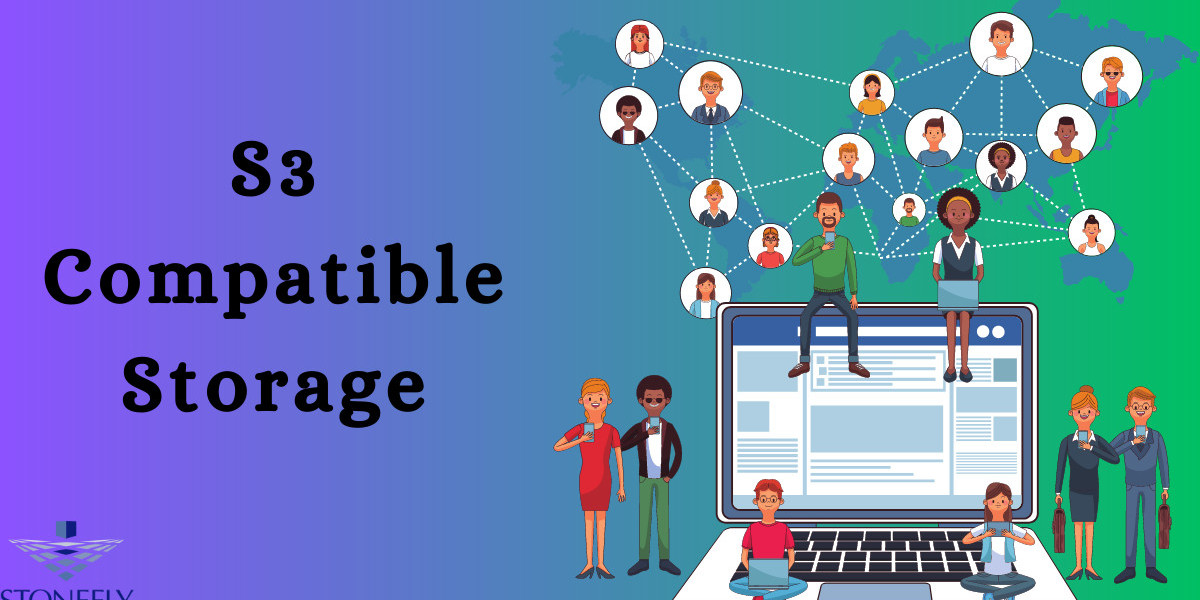S3 Compatible Storage: The Future of Cloud Data Management
In today's data-driven world, organizations are generating vast amounts of data every second. To manage this ever-increasing data, cloud storage solutions have become an integral part of businesses. One of the most popular and widely used cloud storage solutions is S3. However, some enterprises are seeking alternatives to S3 Compatible Storage, such as cost concerns or the desire for more flexible solutions. In this article, we will explore the concept of S3 compatible storage and its implications for the future of cloud data management.
What is S3 Compatible Storage?
S3 compatible storage, also known as S3-compatible object storage, is a cloud storage solution that follows the same application programming interfaces (APIs) and architecture as S3. It enables organizations to store and retrieve large volumes of unstructured data efficiently. The significant advantage of S3 compatible storage lies in its compatibility with existing S3 applications, making it a seamless transition for businesses looking to migrate to an alternative solution.
The Advantages of S3 Compatible Storage
1. Seamless Integration
As mentioned earlier, S3 compatible storage seamlessly integrates with existing S3 applications, making the migration process smooth and hassle-free. Organizations can maintain their current workflows while experiencing enhanced flexibility and cost savings.
2. Cost-Effectiveness
Using S3 compatible storage can be more cost-effective for businesses. While Other S3 solutions are undoubtedly a robust solution, it may become expensive, especially as data storage needs grow. By choosing an alternative S3 compatible storage provider, organizations can optimize costs without compromising on performance.
3. Enhanced Data Security
Data security is a top priority for any organization. S3 compatible storage providers often offer robust security features like encryption, access controls, and data redundancy. This ensures that data remains protected from unauthorized access and potential threats.
4. Scalability and Flexibility
S3 compatible storage solutions are highly scalable and flexible, allowing businesses to adjust their storage capacity based on demand. Whether it's a small startup or a large enterprise, the storage solution can adapt to varying data requirements.
How S3 Compatible Storage Works
1. The Architecture Behind S3 Compatible Storage
The architecture of S3 compatible storage revolves around distributed storage clusters. These clusters store data in the form of objects, each assigned a unique identifier. Metadata associated with the object provides crucial information about its content and access permissions.
2. Uploading and Retrieving Data
Uploading data to S3 compatible storage is a straightforward process. The data is divided into smaller parts and distributed across different nodes in the storage cluster for improved performance and redundancy. Retrieving data involves requesting the object using its unique identifier, and the storage system delivers the data to the user.
Use Cases of S3 Compatible Storage
1. Media and Entertainment Industry
The media and entertainment industry deals with enormous file sizes, including high-definition videos and large image files. S3 compatible storage provides the ideal solution for content management, streaming, and distribution.
2. E-commerce and Online Retailers
E-commerce platforms and online retailers need efficient storage solutions to manage product images, videos, and user data. S3 compatible storage ensures fast and reliable access to product catalogs and customer information.
3. Data Backup and Disaster Recovery
S3 compatible storage serves as a reliable backup and disaster recovery solution. Businesses can store critical data in the cloud, ensuring data availability and continuity in case of unexpected data loss.
4. Collaborative Workflows
Teams collaborating on projects often require a centralized storage system to share files and work collaboratively. S3 compatible storage simplifies this process and promotes efficient teamwork.
Choosing the Right S3 Compatible Storage Provider
1. Performance and Reliability
When selecting a storage provider, organizations must consider performance metrics such as data transfer speeds and uptime. A reliable provider ensures that data is always accessible without any significant delays.
2. Data Compliance and Regulations
Depending on the industry, businesses must comply with specific data regulations and standards. Choosing an S3 compatible storage provider that adheres to these regulations is essential to avoid potential legal issues.
3. Customer Support and Service Level Agreements (SLAs)
Robust customer support and well-defined SLAs are critical aspects of any cloud storage service. Businesses should assess the level of support offered by the provider and the guarantees in case of service interruptions.
Migrating to S3 Compatible Storage
1. Preparing for Migration
Before migration, businesses should assess their current data storage needs and create a comprehensive migration plan. This includes selecting the right storage provider, identifying potential challenges, and ensuring data compatibility.
2. Executing the Migration Process
During migration, businesses must follow the migration plan while closely monitoring the process to address any issues promptly. Testing data access and functionality after migration is crucial to ensure a successful transition.
3. Post-Migration Best Practices
After migration, organizations should optimize their workflows and take advantage of the new features offered by the S3 compatible storage provider. Regular data backups and security audits are essential for maintaining data integrity.
Challenges and Limitations of S3 Compatible Storage
1. Data Transfer Speeds
The speed of data transfer can be affected by various factors, including network connectivity and the physical location of the storage provider's data centers. Businesses should choose a provider with optimal data transfer capabilities.
2. Data Access Latency
In some cases, accessing data from S3 compatible storage may experience slight latency compared to on-premises storage. Businesses must evaluate their specific needs to determine if this latency is acceptable.
3. Data Security Concerns
While S3 compatible storage providers prioritize data security, businesses should implement additional security measures to protect sensitive information fully.
The Future of Cloud Data Management
S3 compatible storage represents a promising future for cloud data management. As businesses continue to adopt cloud solutions, the demand for alternative storage options will grow. The flexibility, cost-effectiveness, and scalability of S3 compatible storage make it a compelling choice for modern organizations.
Conclusion
In conclusion, S3 compatible storage offers an enticing alternative to S3, providing businesses with a seamless migration path, cost-effective solutions, enhanced data security, and scalability. As more organizations recognize the benefits of S3 compatible storage, its adoption will undoubtedly increase.
FAQs
Is S3 compatible storage as secure as S3?
S3 compatible storage providers implement robust security measures, but additional security practices should be followed to ensure data protection.
Can I use my existing S3 applications with S3 compatible storage?
Yes, that's one of the significant advantages of S3 compatible storage - it seamlessly integrates with existing S3 applications.
What are the major cost benefits of using S3 compatible storage?
S3 compatible storage is often more cost-effective than S3, making it a preferred choice for businesses seeking to optimize storage costs.
Is there a limit to the amount of data I can store with S3 compatible storage?
The storage capacity of S3 compatible storage is highly scalable, allowing organizations to adjust their storage needs as required.
How does S3 compatible storage ensure data redundancy?
S3 compatible storage distributes data across multiple nodes, ensuring that data is duplicated and remains available even in the event of hardware failures.


